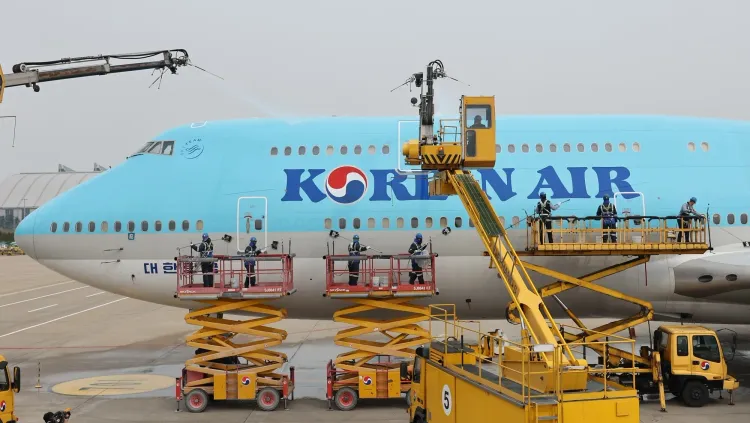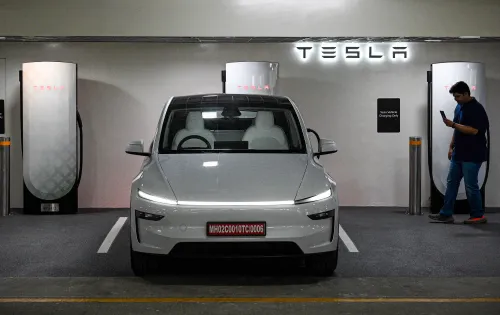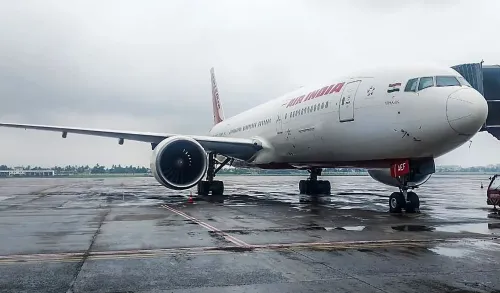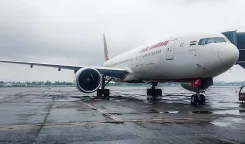Asiana Airlines to Officially Transition into a Subsidiary of Korean Air

Seoul, Dec 11 (NationPress) A comprehensive integration between Korean Air and Asiana Airlines is anticipated to move forward significantly, as noted by industry analysts on Wednesday, following the conclusion of the lengthy merger agreement initially revealed four years ago.
Korean Air has allocated roughly 700 billion won ($489.5 million) to a third-party share issuance by Asiana Airlines. The airline was poised to invest an additional 800 billion won later on Wednesday, elevating its ownership in the competing airline to 131.57 million shares, or 63.9 percent of the total, according to reports from the Yonhap news agency.
This initiative marks the final phase in the plan to create a mega-carrier, which was announced in November 2020. Asiana Airlines will officially be recognized as a Korean Air subsidiary on Thursday.
The agreement has received clearance from competition regulators in all 13 nations, including the European Union. These nations comprise South Korea, the United States, China, and Japan.
The U.S. ruling was especially scrutinized, as a denial could have derailed a merger that has been in pursuit for over four years.
The U.S. Department of Justice reportedly contemplated initiating a lawsuit to prevent the merger due to competition concerns in the American market but ultimately opted against legal action.
To alleviate monopoly apprehensions regarding U.S. routes, Korean Air has adopted proactive strategies, such as broadening its code-sharing agreement with Air Premia for routes to North America.
The agreement for Korean Air to acquire the financially troubled competitor was finalized in late 2020, during a period when the global COVID-19 pandemic severely impacted the domestic airline sector.
Industry projections suggest that the establishment of a mega-carrier under the Korean Air brand is likely to yield an airline that ranks approximately 10th globally regarding fleet size and the number of international flights.
A full-scale integration is expected to require around two years, along with additional processes of structural and personnel amalgamation.
"The complete acquisition of approval from competition regulators is an achievement in itself, but the companies still face significant challenges in becoming a unified entity," remarked an aviation industry analyst.
The airlines may encounter various obstacles in streamlining personnel and organizational frameworks, as well as developing a mileage consolidation strategy.
Concerns about workforce reductions and restructuring have been voiced by labor unions of both companies, despite Korean Air having previously asserted that there will be no arbitrary layoffs at either airline.
The integration of mileage programs could also provoke customer dissatisfaction, depending on how the airlines choose to merge their differing travel mileage systems.










